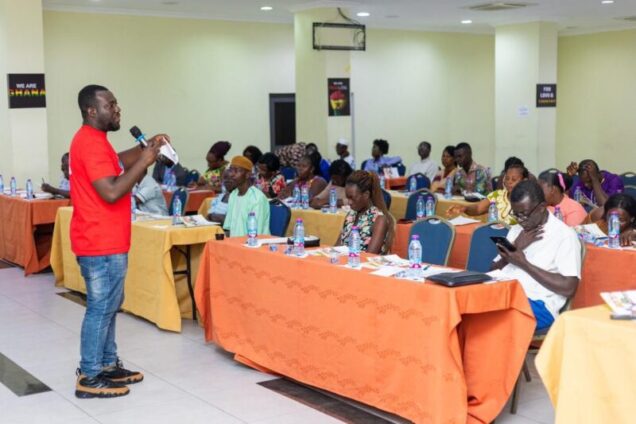Legal practitioner and policy consultant, Dr. Jamal Tonzua, has criticized the government’s reliance on military intervention to fight illegal mining as a “lazy approach”.
He argues there have been instances where the military has compromised its reputation by offering protection to illegal miners.
Dr. Tonzua says the government has failed to properly enforce existing mining laws, leading to a crisis that has taken a national security dimension.
In the latest fight against illegal mining, President Akufo-Addo directed the revocation of the legislative instrument allowing mining in forest reserves, as well as the deployment of soldiers and the setting up of 14 courts to trial illegal miners.

This followed heightened public agitations for an end to illegal mining wreaking havoc in the country’s lands, water bodies, vegetation and extractive sector.
However, Policy Consultant, Dr. Jamal Tonzua, says military interventions in the fight have been ineffective.
He believes the solution requires a data-driven, evidence-based approach, not temporary military deployments.
“The government is securitizing the Galamsey fight. There has been evidence of illegal miners being protected by men in uniform. It's not helping. It is a short-term measure. That is not the silver bullet to solving the problem. What we need is a data-driven, and evidence-based solution,” he said.

Dr. Tonzua was speaking at a skills training workshop on advocacy, negotiation, dialogue and conflict management and resolution by the Nature and Development Foundation (NDF).
The workshop aims to support participants from mineral extraction communities in identifying and planning advocacy actions in their various communities.
Dr Tonzua says the destruction of lands by illegal mining activities is fueling resentment among affected communities, with the potential for violent retaliation, emphasizing the importance of the training.
"Duty bearers have already failed to enforce lining laws properly. Now we have a crisis on our hands. There is a national security dimension to this problem. It's the cause of violence and insecurity. People whose lands have been destroyed, won't sit aloof.
"They may try to retaliate. The people feel neglected. This is why they need to emulate the negotiation and diplomacy skills. Which is the focal point of this training,” he said.
The two-day Skills and knowledge training workshop was themed: Advocacy, Negotiation, Dialogue, and Conflict Management and Resolution for key stakeholders in extractive communities.
Participants acknowledge the growing misconduct of illegal mining activities, fueling property disagreements.
Director of NDF, Mustapha Seidu said “People are making money for what we say we don't like."
"This conflict will not be like the household fights, but something very threatening. So first is to be aware of what is coming and is at stake. People who are making money in destructive ways will come face to face, and you'd need to face them, not with violence too,” he said.
The skills training workshop was funded by the European Union (EU) and UKAid under the Building Resilient Active Communities in Extractive Sectors of Ghana (BRACE) and Building Active Actors and Systems to Support (BAASS) Deforestation Free Commodities in Ghana and Liberia projects respectively.
UKaid is funding the BAASS project and EU is funding the BRACE project.
Latest Stories
-
We’ll crack the whip at the appropriate time – NPP warns amid internal rifts
1 minute -
Rawlings’ values must be our guide – Asiedu Nketia
22 minutes -
Bawumia’s meeting with MMDCEs a political strategy – Kwasi Kwarteng
51 minutes -
Kofi Owusu Peprah reveals why he quit his job as a BNI officer
53 minutes -
No candidate matches Bawumia’s experience and exposure – NPP Communications team member
55 minutes -
220 former MMDCEs endorse Bawumia as 2028 NPP flagbearer
1 hour -
Iran Israel conflict: Ghanaian businesses lament over rising freight charges
1 hour -
Qatar closes airspace as UK and US tell citizens to shelter in place
2 hours -
NPP flagbeaership: I’m quietly building my support base – Dr. Adutwum
2 hours -
Dr. Adutwum’s bid for NPP flagbearer gains momentum, Railway Market traders declare support
2 hours -
Ghana winger Christopher Bonsu Baah set for big-money move to Saudi Arabia
2 hours -
Police warns public against fake recruitment scam
2 hours -
Bands must be recognised in award schemes – Nkyinkyim Band
3 hours -
Du Bois Museum Foundation marks 40th anniversary of memorial centre for Pan-African culture
3 hours -
Multichoice Ghana announces major discounts on DStv and GOtv
3 hours

